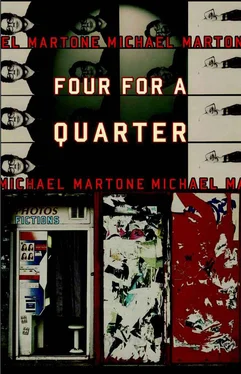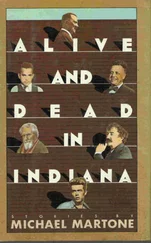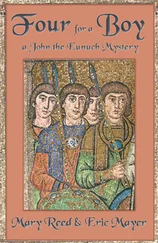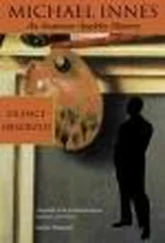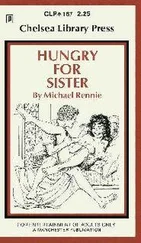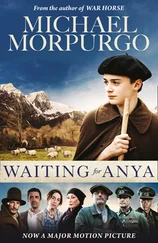C
We didn't learn a thing, of course, about quadratics. It's true what they say about high school math. I never needed it in life after high school. I am writing this, years later, on graph paper I found lying around. I use it to keep the lines of my handwriting more or less level. I thought I would jot down this memory before it got away from me. I like filling in the spaces of the grid, one letter to a square, a word or two or three in each ten-by-ten box of squares. I am doing this early in the morning before my kids wake up. They find pretty much everything I do now hard to understand.
MEAT
Because I could play baseball, I never went to Korea.
I was standing on the dock in San Francisco with my entire company. We stood at parade rest, wearing helmets, loaded down with winter and summer gear. We were ready to embark. My name was called. I remember saying excuse me to the men in rank as I tried to get by with my equipment. Then I sat on my duffel and watched them file aboard, bumping up the side of the ship, the cables flexing. There was rust in the bilge. I could hear the water below me. Sailors laughed way over my head. It only took a few hours. There were some people there to wave good-bye, though not for the soldiers since our shipping out was something secret.
Nothing was ever said. I was transferred to another unit where all the troops were baseball players. I played second base on the Third Army team. I batted seventh and bunted a lot. We traveled by train from one base to another in Texas, Georgia, and on up into New Jersey for the summer. We had a few cars to ourselves including a parlor with an open platform. The rest of the train was made up of reefers full of frozen meat. The train was aluminum and streamlined. We could stand in the vestibules, or in the open doorway of the baggage car where we kept the bags of bats and balls and the pinstriped uniforms hung on rods, and look out over the pink flat deserts. There wouldn't be a cinder from the engine, the train's wheels a blur. You would see up ahead on the slow curves the white smoke of the whistle trailing back over the silver boxcars of meat, and then you would hear the whistle. Some cars still needed to be iced, so we'd stop in sad little towns, play catch and pepper while the blocks melted in the sun and the sawdust turned dark and clotty on the platform. We'd hit long fly balls to the local kids who hung around. We left them broken bats to nail and tape.
The meat was our duty. It was what we said we did even though everyone knew we played baseball. The Army wanted us to use frozen meat instead of fresh. We ran the tests in messes to see if the men could tell the difference. We stood by the garbage cans and took the plates to scrape and separate the scraps of meat to weigh for waste. A red plate meant the meat was fresh. The bone, the chewed gristle, the fat. I picked it out of the cold peas and potatoes. Sometimes whole pieces would come back, gray and hard. The gravy had to be wiped off before the meat went on the scale. Those halls were huge, with thousands of men hunched over the long tables eating. We stood by watching, waiting to do our job.
It made no difference, fresh or frozen, to the men. This pleased the Army. Things were changing. Surplus from the war was being given to the UN for the action in Korea. There were new kinds of boots and rifles. Back then every camp still had walk-in lockers. The sides of meat hung on racks. The cold blew through you. Blue inspection stamps bled into the yellow fat of the carcasses. All gone now. That's what I did in the service.
But the baseball didn't change. The ball still found my glove. There were the old rituals at home. I rubbed my hands in the dirt, then wiped them on my pants, took the bat and rapped it on the plate. The pitch that followed always took me by surprise — hard and high, breaking away. The pitcher spun the ball like a dial on a safe. And trains still sound the same when they run through this town. At night, one will shake our house (we live near an overpass) and I can't go back to sleep. I'll count the men who walked up that gangway to the ship. The train wheels squeal and sing. It might as well be hauling the cargo of my dreams.
DISH NIGHT
Every Wednesday was Dish Night at the Wells Theatre. And it worked, because she was there week in and week out. She sat through the movie to get her white bone china. A saucer. A cup. The ushers stood on chairs by the doors and reached into the big wooden crates. There was straw all over the floor of the lobby and balls of newspaper from strange cities. I knew she was the girl for me. I'd walk her home. She'd hug the dish to her chest. The streetlights would be on and the moon behind the trees. She'd talk about collecting enough pieces for our family of eight. “Oh, it's everyday and I know it,“ she'd say, holding it at arm's length. “They're so modern and simple and something we'll have a long time after we forget about the movies.“
I forget just what happened then. She heard about Pearl Harbor at a Sunday matinee. They stopped the movie, and a man came out on stage. The blue stage lights flooded the gold curtain. It was dark in there, but outside it was bright and cold. They didn't finish the show. Business would pick up then, and the Wells Theatre wouldn't need a Dish Night to bring the people in. The one we had gone to the week before was the last one ever, and we hadn't known it. The gravy boat looked like a slipper. I went to the war, to Europe, where she wrote to me on lined school paper and never failed to mention we were a few pieces shy of the full set.
This would be the movie of my life, this walking home under the moon from a movie with a girl holding a dinner plate under her arm like a book. I believed this is what I was fighting for. Everywhere in Europe I saw broken pieces of crockery. In the farmhouses, the cafés. Along the roads were drifts of smashed china. On a beach, in the sand where I was crawling, I found a shard of it the sea washed in, all smooth with blue veins of a pattern.
I came home and washed the dishes every night, and she stacked them away, bowls nesting on bowls as if we were moving the next day.
The green field is covered with tables. The sky is huge and spread with clouds. The pickup trucks and wagons are backed in close to each table so that people can sit on the lowered tailgates. On the tables are thousands of dishes. She walks ahead of me. Picks up a cup, then sets it down again. A plate. She runs her finger around a rim. The green field rises slightly as we walk, all the places set at the tables. She hopes she will find someone else who saw the movies she saw on Dish Night. The theater was filled with people. I was there. We do this every Sunday after church.
WHAT I SEE
I was killing time at the ranger station in West Glacier, twirling the postcard racks by the door. There was an old one of some teenagers around a campfire near Swift Current Lake. They have on dude ranch clothes, indigo jeans with the legs rolled into wide cuffs. The boys have flattops. There is a ukulele. One girl, staring into the fire, wears saddle shoes. The colors are old colors, from the time women all wore red lipstick. Beyond the steel blue lake the white glaciers are smearing down the mountainsides. I saw the glaciers even though it was night in the card. They gave off their own light. No one ever bought this card, not even as a joke. I was looking at this card when a woman walked in with her son. They mounted the stair above the model of the park. The models of the mountains were like piles of green and brown laundry, the glaciers sheets. The lakes were blue plastic. A red ribbon stood for the Going to the Sun Highway. It all looked manageable. The mother pointed. In the corner was the little house. You are here. She said to me then: Is there any place we can go to overlook the grizzlies?
Читать дальше
